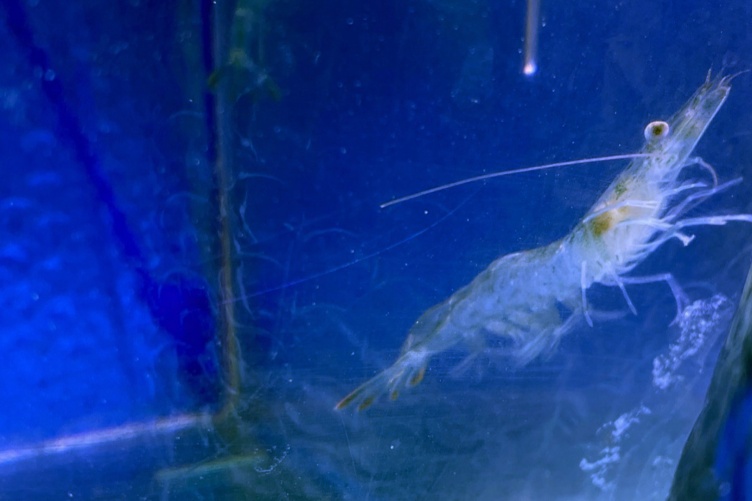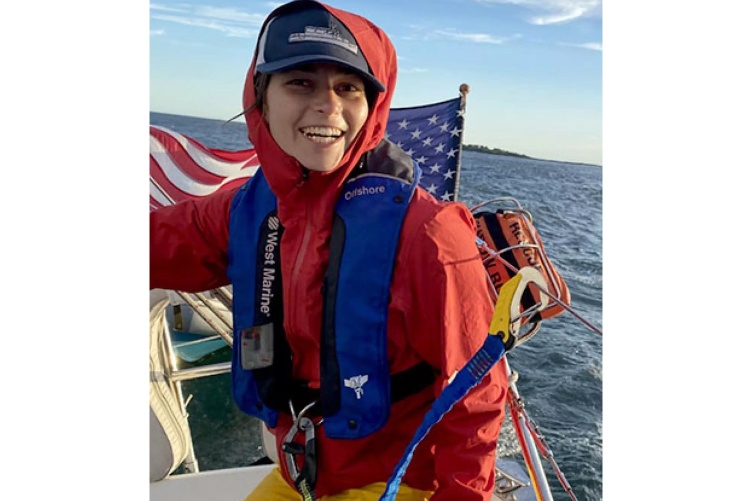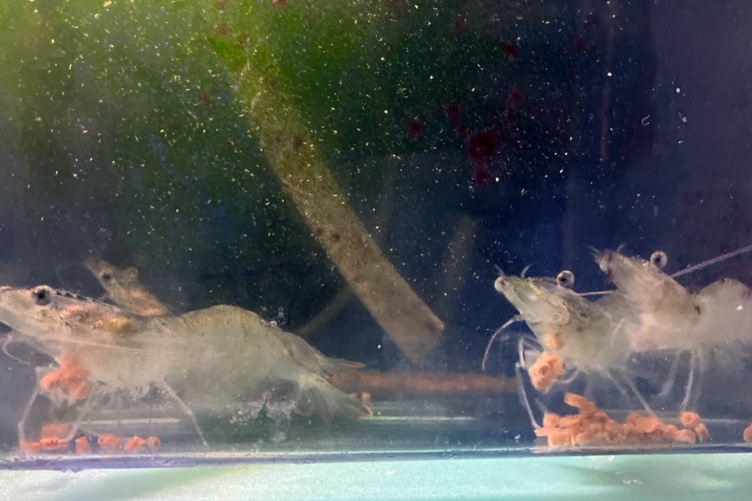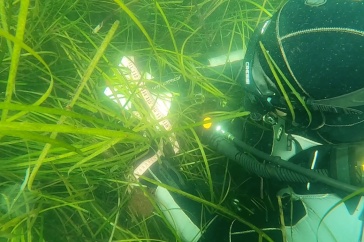Scientists with UNH’s College of Life Sciences and Agriculture (COLSA) and the School of Marine Science and Ocean Engineering are studying how integrated multi-trophic aquaculture (IMTA) – systems in which two or more organisms are farmed together – could make shrimp farming more sustainable, as well as potentially support the growth of this industry in the U.S.
Driven largely by demand in developed countries, shrimp farming has grown rapidly in subtropical and tropical parts of Asia and the Americas. However, shrimp farming also has significant environmental impacts, including increased ammonium levels that cause algal blooms and oxygen-depleted dead zones.
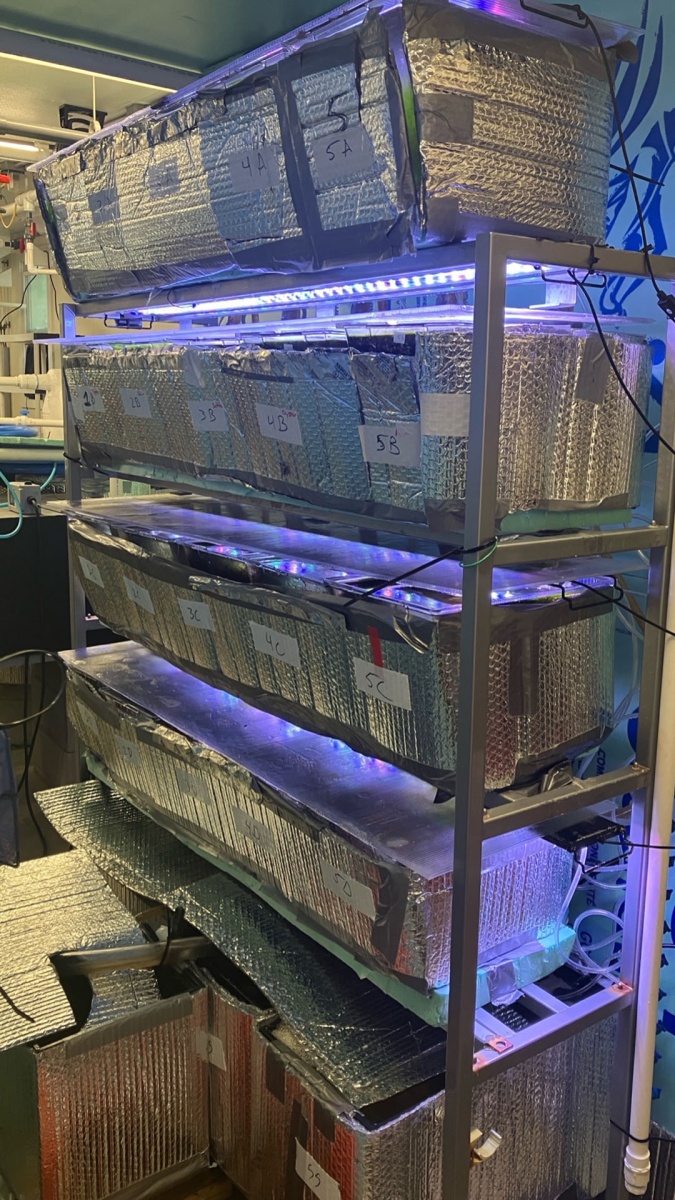
“Much of the shrimp we consume comes from overseas, where they don’t need to follow the same environmental regulations as we do here in the U.S.,” explains Elizabeth (Lizzy) Martin, a graduate student in the marine biology program at COLSA. “And shrimp is also one of the highest valued seafood imports for the U.S., so developing a local industry would help reduce reliance on these overseas markets.”
As part of her research, Martin is studying IMTA systems that pair farmed shrimp with water-filtering species, like oysters, to determine if the grouping will cut down on the amount of ammonia – a form of nitrogen – and phosphorus that remains in the water as part of the farming process. Shrimp produce ammonia naturally. Additionally, other ammonia contributors include shrimp feed, which is often high in nitrogen, and the natural decomposition of the shrimp feed, dead organisms, feces and other materials found within the large artificial ponds that shrimp are commonly raised in. This “pond” water is then discharged into the surrounding environment, resulting in the affluent entering waterways and, in the U.S., potentially violating regulations like the EPA’s Clean Water Act.
In natural environments, water-filtering species, like shellfish, help clean the water of the excess nutrients. Martin tested if a similar method could be used in more of a closed farming system, in which native oysters and nonnative red seaweed could grow alongside Pacific white shrimp, offering the dual advantage of cleaning the water and providing an additional income source to aquaculturists (also known as fish farmers).
“We had three treatments — shrimp with the seaweed, shrimp with the seaweed and an oxygenator and shrimp with the seaweed and oysters,” says Martin, who conducted her experiment at the UNH Coastal Marine Lab in New Castle, New Hampshire. “And what we found was that the final treatment, the shrimp with the seaweed, which absorbs and stores nitrogen, and the oysters resulted in a reduced level of nitrogen (including ammonia, nitrite and nitrate) over time.”
What Martin found was that the oysters help control the production of nitrogen better, resulting in significantly lower amounts over a 30-day window when compared to the other two treatments. This method not only has the potential to grow shrimp sustainably but also offers additional benefits, such as producing marketable products like seaweed and oysters. The products can diversify the revenue streams for aquaculture farms while contributing positively to the environment. And while the implementation of such systems faces challenges, including regulatory issues and environmental concerns unique to the U.S. compared to traditional shrimp farming practices in Asia, the study provides a pathway for more sustainable practices that could be adopted widely, including right here in New England.
“Lizzy’s research is significant as it demonstrates a novel IMTA approach to culture shrimp in a closed recirculating aquaculture system,” says Michael Chambers, a research associate professor with the UNH School of Marine Science and Ocean Engineering and Martin’s graduate advisor. “In this manner, shrimp could be grown inside a barn, greenhouse or even a basement to provide fresh seafood to local restaurants at a premium price.”
Learn more about related research conducted by UNH's Center for Sustainable Seafood Systems online.
-
Written By:
Nicholas Gosling '06 | COLSA/NH Agricultural Experiment Station | nicholas.gosling@unh.edu














































